What Are the Benefits of Crypto Index Investing? Why Smart Investors Choose Indices in 2025

The crypto market in 2025 is more advanced, more crowded, and more volatile than ever before. Thousands of tokens compete for attention, and prices can move dramatically in hours. For many investors—especially those who want to participate without day-trading—crypto index investing is the smartest and simplest way to grow wealth in the digital asset space.
But what exactly are the benefits of investing in a crypto index?
In this article, we’ll walk through the major advantages of crypto index investing—especially compared to picking individual tokens—and explain why more investors are turning to indices for long-term success.
What Is a Crypto Index?
A crypto index is a curated portfolio of cryptocurrencies bundled together to represent a market segment, investment strategy, or theme. It works just like an index fund or ETF in traditional finance—except it’s built for the crypto world.
Popular types of indices include:
- Market Cap Indices (e.g., Top 10 or Top 100 cryptos)
- Thematic Indices (e.g., AI Tokens, DeFi, Layer 1s)
- AI-Powered Indices (automatically optimized using data models)
- On-Chain Tokenized Indices (composable in DeFi protocols)
The 8 Biggest Benefits of Crypto Index Investing
✅ 1. Diversification
Perhaps the biggest benefit of a crypto index is built-in diversification. Instead of betting on a single token, you gain exposure to multiple assets at once.
This spreads your risk. If one token underperforms or crashes, others in the basket can offset the loss—making your portfolio more resilient.
Example:
A DeFi Index might hold AAVE, UNI, LDO, and GMX. If UNI struggles, strong performance from LDO or GMX could still deliver overall gains.
✅ 2. Simplified Investing
Crypto can be complex—new tokens launch daily, narratives shift, and technical analysis isn’t for everyone.
Indices simplify your decision-making. You don’t need to constantly:
- Analyze charts
- Read whitepapers
- Follow token announcements
Instead, you choose an index that fits your goals, invest once, and let the structure handle the rest.
✅ 3. Automated Portfolio Management
Most crypto indices rebalance automatically—meaning they adjust the weights of the tokens in the basket based on performance, market cap, or AI-generated signals.
Rebalancing helps:
- Lock in profits when a token pumps
- Reduce exposure to weak assets
- Maintain a consistent strategy
For example, Token Metrics AI Indices rebalance weekly based on 80+ data points per token, including volatility, momentum, and sentiment.
✅ 4. Thematic Exposure to Emerging Trends
Crypto moves in narratives: AI, Memecoins, Real World Assets (RWA), Gaming, and more. Sector-based indices allow you to invest in these narratives without trying to guess which token will lead the trend.
Want to ride the AI boom? Buy an AI Tokens Index.
Want exposure to new L1 blockchains? Choose a Layer 1 Index.
Thematic investing through indices is one of the most effective ways to align with where capital is flowing.
✅ 5. Lower Risk Than Single-Token Investing
Individual tokens can be incredibly volatile—and if you choose the wrong one, your entire investment may collapse.
Indices smooth out volatility by combining multiple tokens. While the overall market is still risky, your exposure is far more controlled.
AI-powered indices go even further by:
- Exiting bearish tokens
- Moving into stablecoins during downturns
- Increasing weight in bullish assets
This is dynamic risk management, not just passive exposure.
✅ 6. Reduced Emotional Bias
Let’s face it—crypto investors are often their own worst enemies.
- Panic selling at the bottom
- FOMO buying at the top
- Overtrading
- Holding losing tokens too long
Index investing removes these human emotions. Your portfolio follows rules, not feelings. Whether it’s a passive index or an AI-managed one, you gain disciplined, unemotional investing.
✅ 7. Accessibility and Affordability
Crypto indices are now easier than ever to access. Most platforms allow you to start investing with as little as $50 to $100.
Depending on the platform, you can:
- Invest using a crypto wallet (DeFi)
- Use a credit card or USDC on centralized platforms
- Hold a single index token that represents the entire portfolio
This makes crypto indexing ideal for beginners, busy professionals, and even institutions.
✅ 8. Performance Optimization (With AI Indices)
Passive indices offer simplicity and safety. But if you want to outperform the market, AI-powered indices give you an edge.
Token Metrics AI Indices, for example:
- Scan hundreds of tokens weekly
- Identify bullish and bearish trends
- Reallocate capital to outperform traditional strategies
In 2024 and early 2025, many AI indices beat market cap indices by double-digit margins—especially during volatile market phases.
Real-Life Example: How a Crypto Index Adds Value
Let’s say you want to invest in DeFi but don’t know which tokens to pick.
You choose the Token Metrics AI DeFi Index. It currently includes:
- AAVE
- LDO
- RUNE
- DYDX
Each week, it checks market signals. If LDO looks weak, the index might reduce exposure and allocate more to DYDX. If the entire market looks bearish, it might reduce risk by shifting into USDC.
You don’t need to lift a finger—but your portfolio stays optimized.
Bonus Benefit: Indices Work for Every Investor Type

Final Thoughts: Indices Are the Smartest Way to Invest in Crypto
Whether you're new to crypto or looking to upgrade your portfolio strategy, crypto indices offer unmatched benefits in 2025:
- Broad diversification
- Automated risk management
- Exposure to high-growth themes
- Simpler, smarter investing
Platforms like Token Metrics offer next-generation AI-driven indices tailored to your goals, helping you grow your portfolio while reducing the stress of crypto investing.
If you want to participate in crypto’s upside without constantly worrying about the downside, crypto indices are your best bet.
Create Your Free Token Metrics Account

.png)




%201.svg)
%201.svg)


%201.svg)



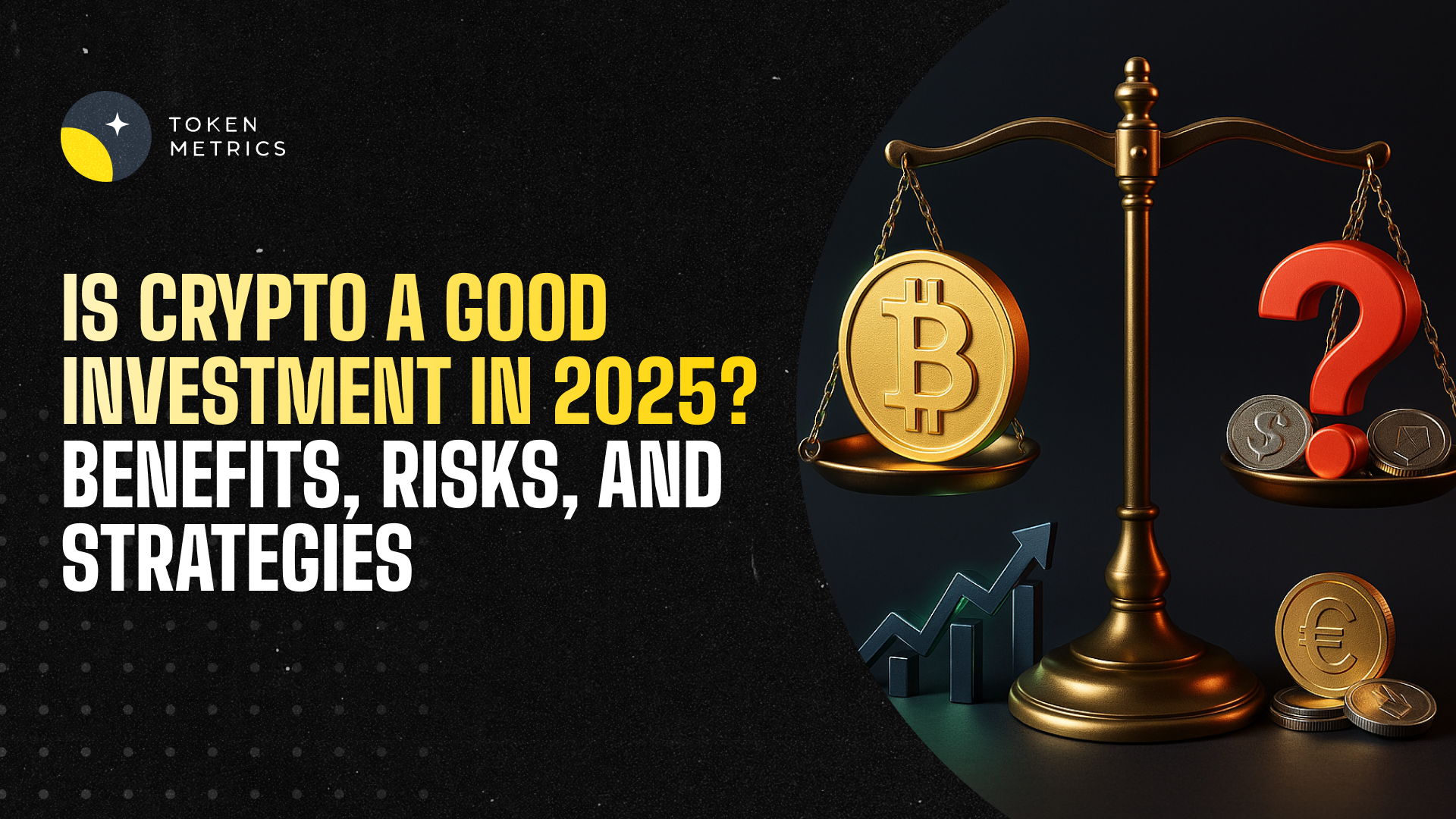


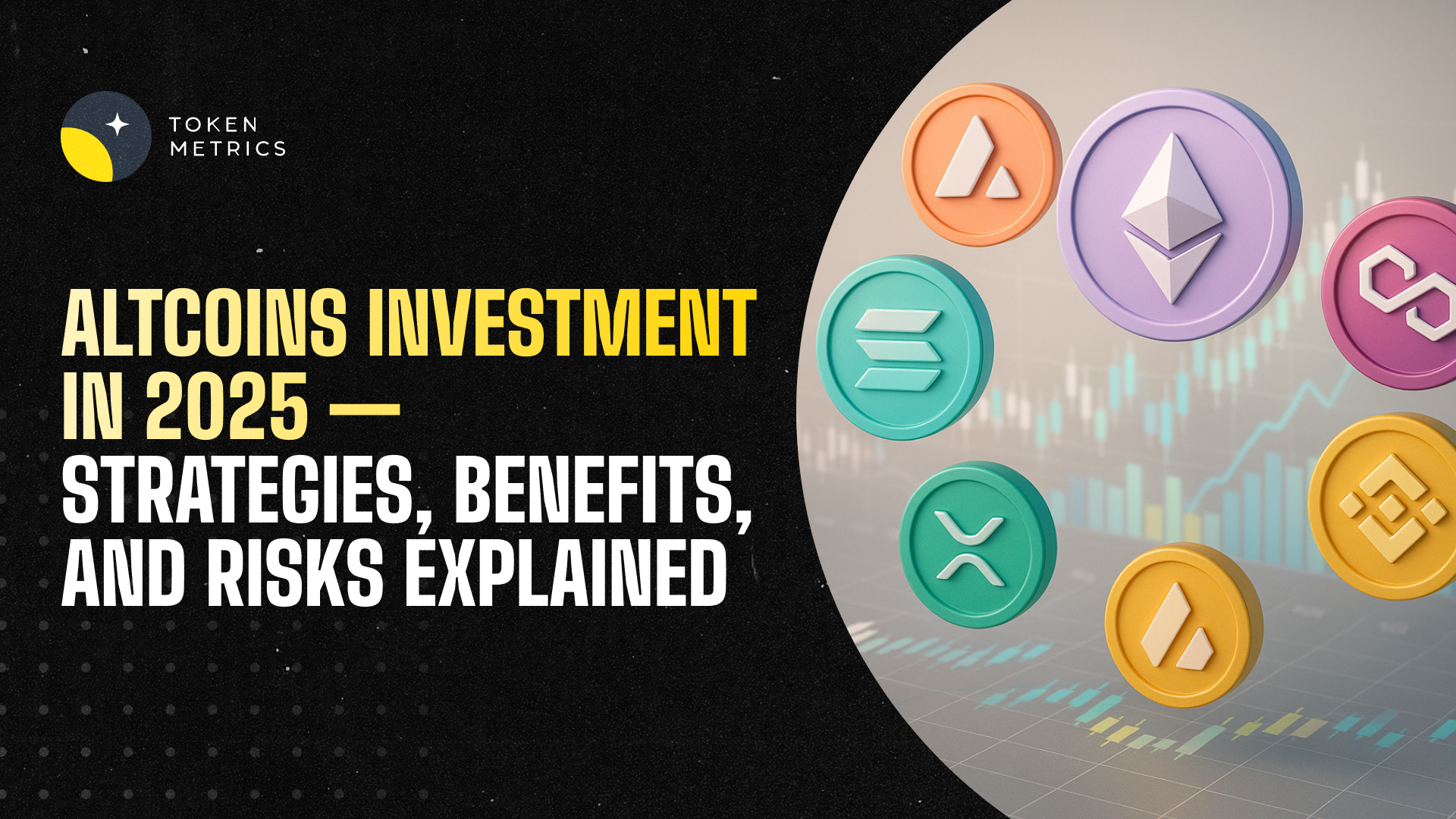
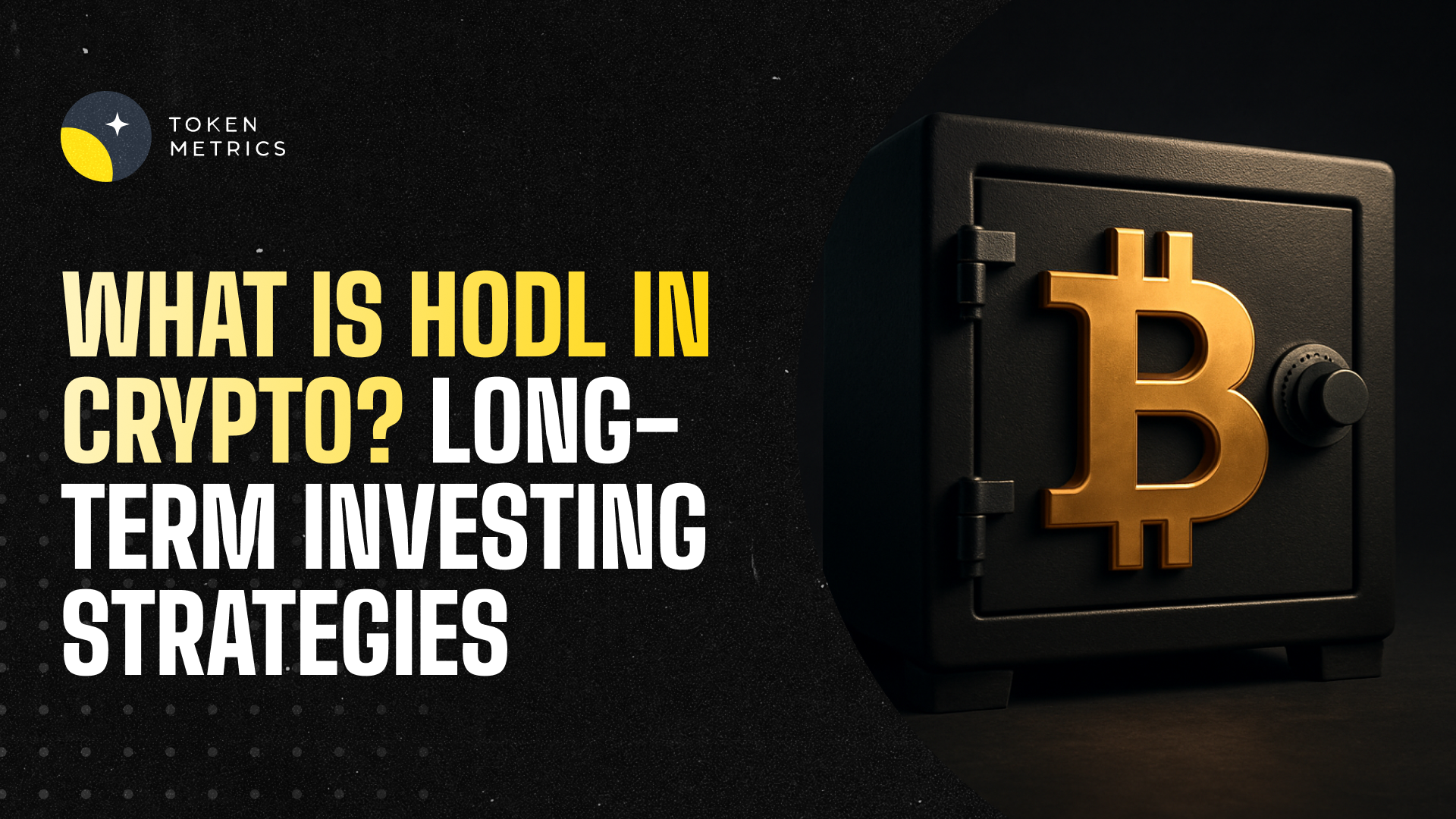
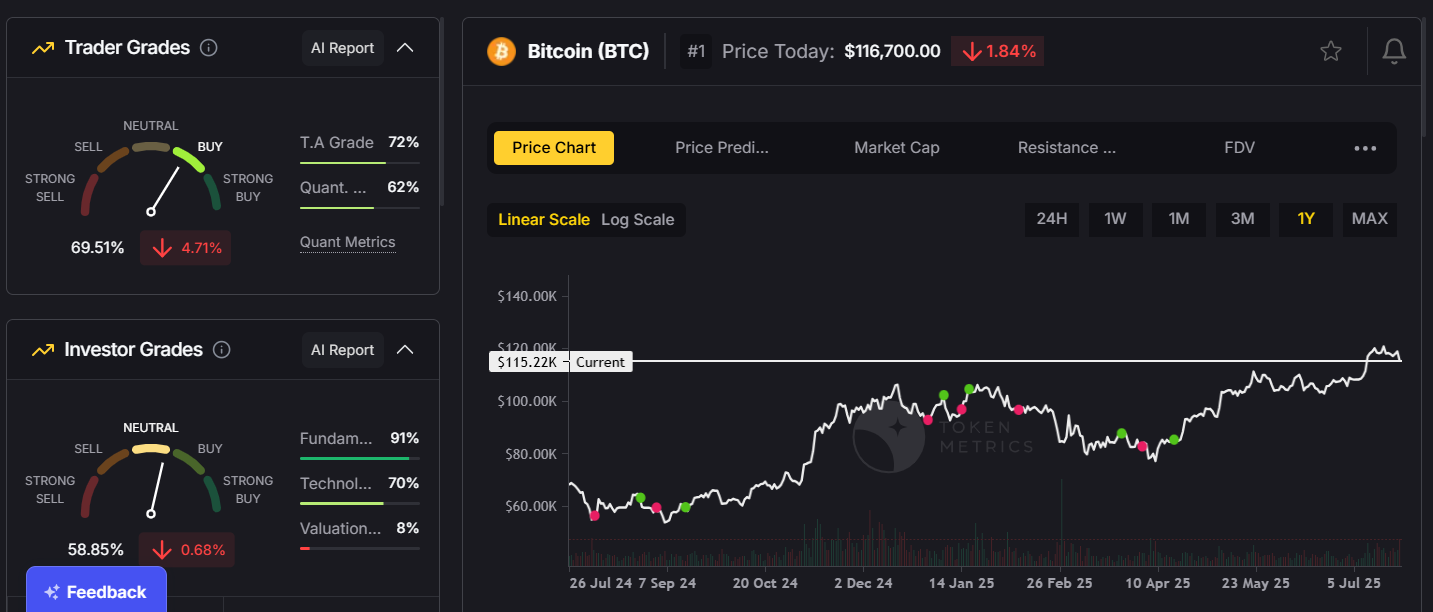
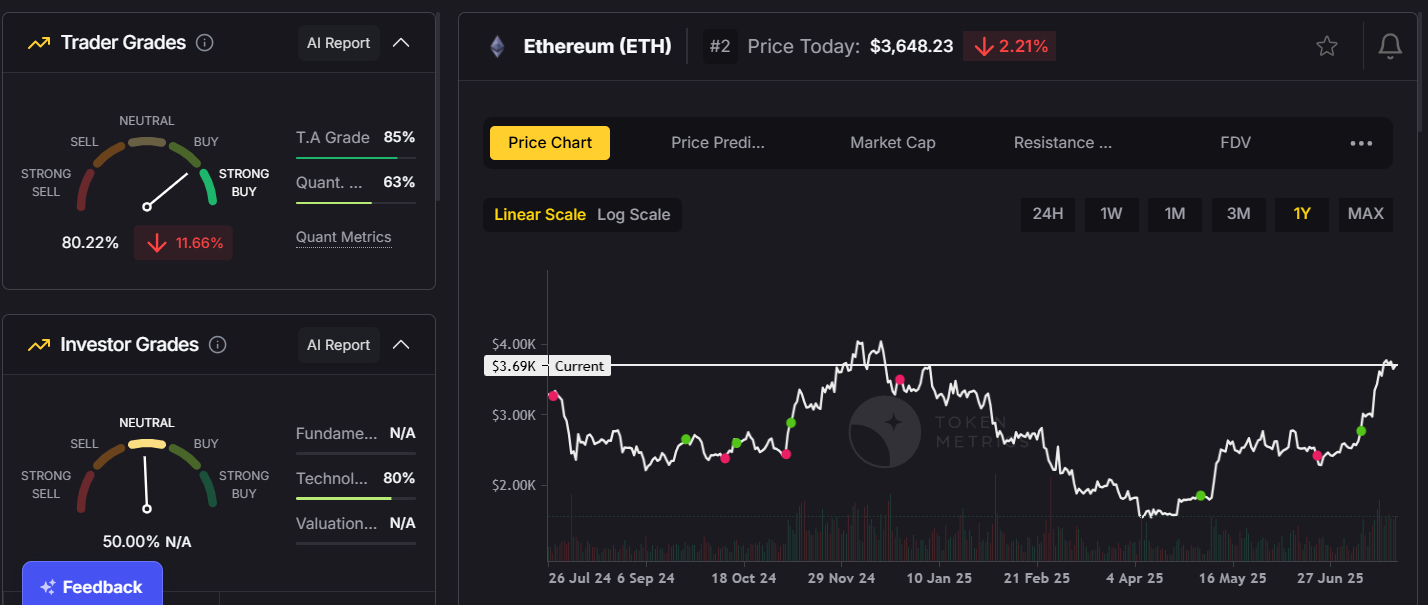
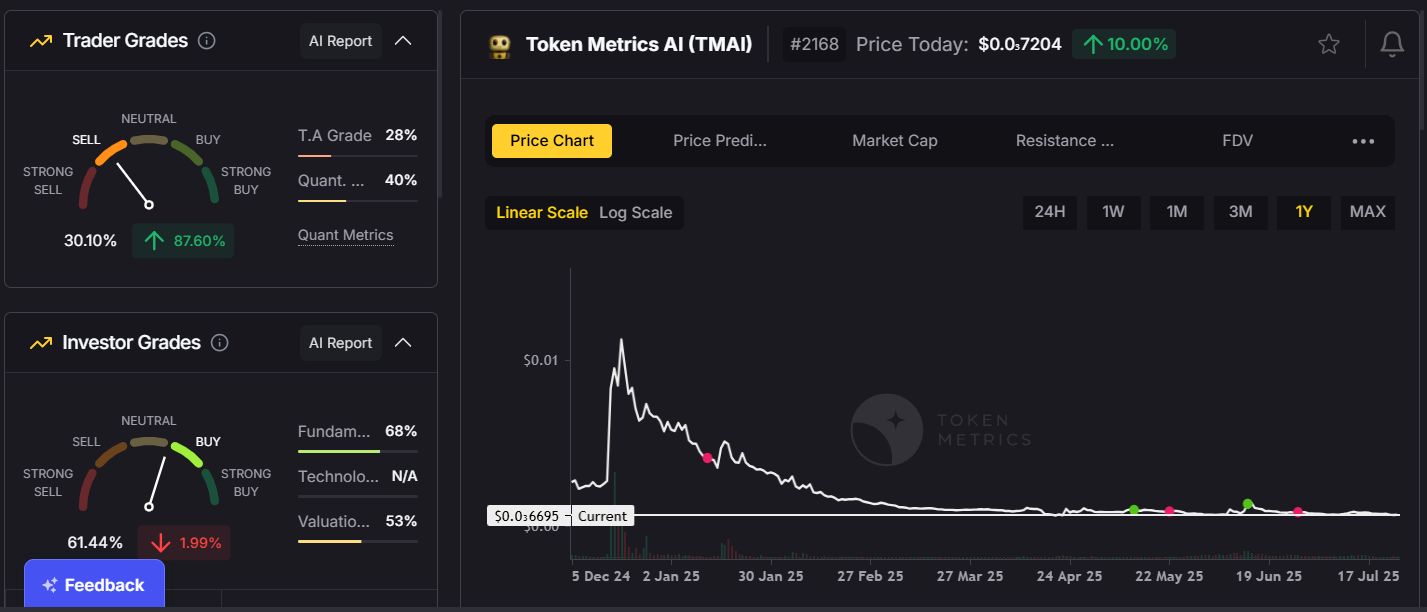
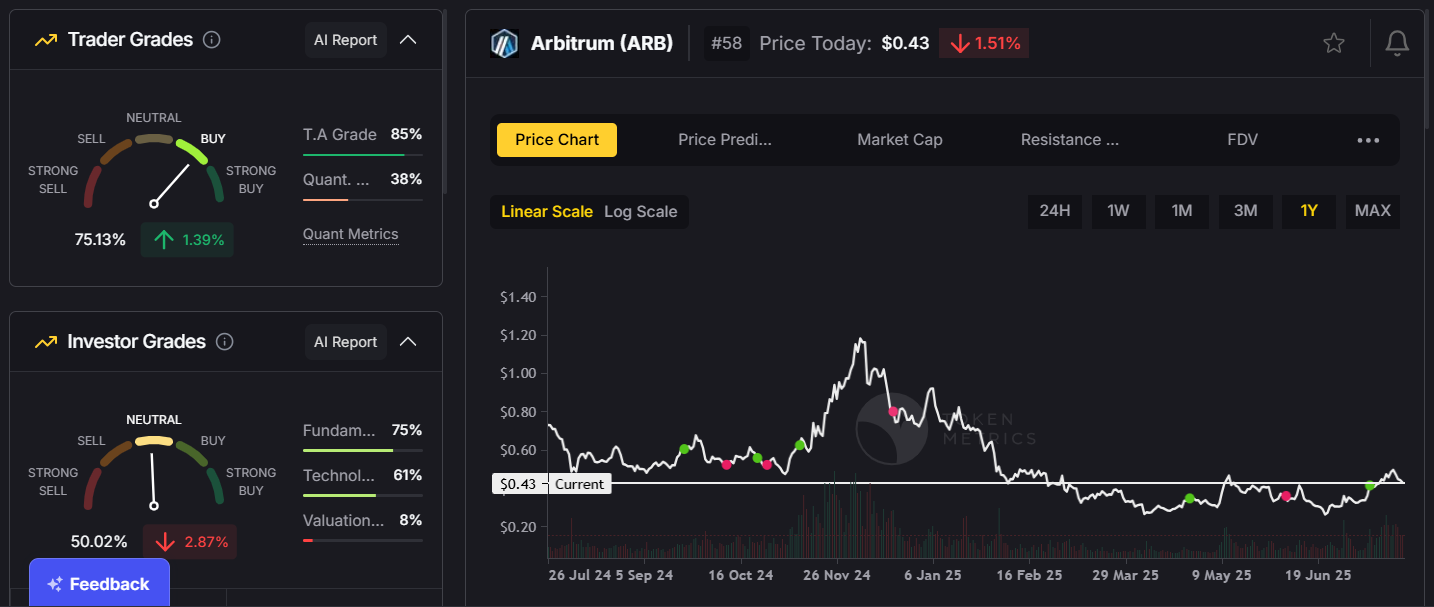




.svg)




.png)